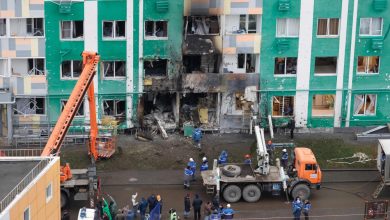Cyprus and Greece diverge on housing and economic drivers, says expert

Cyprus and Greece may share a common reference point in real estate and services, yet their balance reveals two distinct growth models, according to Pavlos Loizou, CEO of Ask Wire.
As Loizou put it, “Cyprus continues to ‘build’ its economy. In contrast, Greece lives mainly by utilising what it already has.”
In recent years, he said, real estate-related activities in Cyprus have represented around 15–16 per cent of the country’s GDP, among the highest ratios in Europe. About two-thirds stem from rental income and property management, while the rest comes from construction.
In cities such as Limassol or Larnaca, he noted, “one in three new apartments is purchased by foreigners, if not more,” while large projects such as marinas, tourist complexes, and energy facilities are reshaping entire areas.
This heavy reliance, Loizou warned, has two sides. On the one hand, construction generates employment and attracts capital, but on the other, it increases economic vulnerability.
“Housing prices have increased by over 25 per cent since 2020,” he said, pointing out that both the Central Bank of Cyprus (CBC) and the International Monetary Fund (IMF) have cautioned about “a loss of affordability and rising inequality.”
A major project freeze or a decline in foreign markets, he added, could be directly reflected in GDP, since Cyprus grows “by building” and its performance “depends on external cycles.”
Greece, by contrast, has followed a different path. Loizou observed that real estate activities there contribute around 11–13 per cent of GDP, while construction represents only 2–3 per cent, with modest gains due to European Recovery Fund projects.
“Growth comes mainly from the tourism, shipping and consumption sectors,” he explained, “rather than from new construction.”
In recent years, however, Loizou said Greece has seen a dramatic rise in foreign direct investment (FDI) in real estate, now accounting for about 40–45 per cent of total inflows.
“The majority of it concerns the purchase of housing through the Golden Visa programme,” he said, “especially in Athens and Thessaloniki.”
While this has supported the market and revived interest in renovations, Loizou added it “has not translated into widespread production of new properties,” since most purchases concern existing apartments used for short-term rental.
He also drew attention to the country’s low capital renewal. “Investments amount to 12–13 per cent of GDP and are almost half of pre-crisis levels,” he said.
Building permits correspond to a third of those issued in 2007, and “the average building is over 30 years old.”
Meanwhile, he noted that profits from tourism and shipping “are often channelled into imports or loan repayments rather than new infrastructure or productive projects.”
All of this, Loizou explained, has a direct social impact on both countries.
“In Cyprus, construction provides jobs but intensifies precision, while in Greece stability limits risk but also opportunities for new projects and employment.”
Thus, he argued, the model followed in each case “becomes income-based rather than investment-based.”
As for what this means for the markets in Cyprus and Greece, Loizou outlined several implications. For real estate agents, he said, “activity will remain intense” in Cyprus, though buyers feel pressure from prices.
In contrast, in Greece, the market is “driven mainly by foreign investors and Golden Visa purchases, with fewer new developments.”
For investors, Loizou explained, “Cyprus offers higher returns but also greater volatility. Greece offers more stable returns, especially in rental and tourist properties, with lower risk.”
Turning to valuers, he said that in Cyprus, understanding “rapidly changing values due to foreign inflows” is essential, while in Greece “accuracy in the valuation of old properties and limited transactions is required.”
As for builders and developers, Loizou said Cyprus “has room for more affordable and energy-efficient projects,” while Greece offers opportunities “for renovations and reuse of existing properties, with support from European funds.”
Loizou noted that both economies have endured after the crisis, yet their next challenge is balance, adding that “Cyprus is called upon to diversify its development by interconnecting it with sectors beyond real estate, and Greece to transform foreign interest into real investment renewal.”


